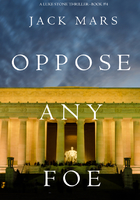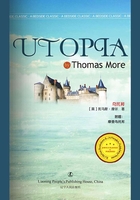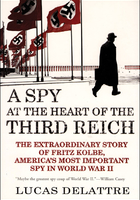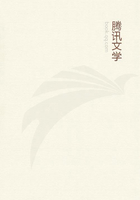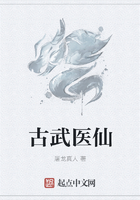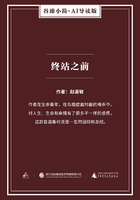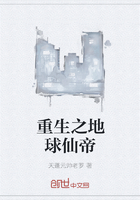In the summer of the year 1768, two regiments of Foot, The Fourteenth and The Twenty-ninth, and one company of Artillery, were sent to Boston to assist the magistrates and revenue-officers in enforcing the law. This measure was represented by the Boston politicians as if a great herd of lions had been let loose on the town to tear and mangle the inhabitants; but from what I have been told by men of The Fourteenth who later fought beside me in Canada and upper New York, the matter was altogether different-these soldiers felt themselves so many Daniels in the wild beasts' den. For the lawyers and the Congregational ministers, their allies, controlled the populace, the most sturdy and intemperate part of which lived in Fish Street and Battery Marsh. This mob, under the respectable dress of town-meetings, put terror upon all those who were accounted friends of England; by beatings, burnings, and that strange indignity of tar and feathers, the use of which had been discontinued by our ancestors, so I have read, about the time of bad King John. No magistrate and no jury, whatever their real convictions might be, dared bring in a verdict obnoxious to the real rulers of Boston; it was endangering his own life and property for any officer of the law to call assistance of the military; and the individual British soldier accused, however falsely, of a crime, however trifling, was altogether at the mercy of these base-minded, facetious, and enthusiastic people.
Constantly soldiers and even officers were arrested on frivolous charges, refused bail, and kept in jail until the case came up for trial; when, the prosecutors not coming forward, the case was dismissed and no explanation or satisfaction offered. On one occasion a soldier was arrested in barracks by a constable; since the warrant of arrest did not particularize the soldier by name, his officers appeared on his behalf in court to protest against this infringement of his rights as a citizen. They were thereupon indicted for riot and rescue and made to pay a heavy fine, while the magistrate thundered at them from the bench, threatening them with the vengeance of the town! Two soldiers of The Fourteenth, emerging one day from the hospital after a bout of fever and scarcely able to walk, were set upon by the mob and half-killed by sticks, fists, and boots. They appealed to Major-General Mackay, their commander, for redress and he condoled with them for their misfortunes. 'But,' said he, 'be advised and seek no revenge. For even if you can identify your assailants, as you say, there is no justice for soldiers in Boston. Here is half a guinea for each of you, my lads. Drink and forget.'
And it may not be credited, but it actually occurred to my knowledge: a soldier found guilty (I do not know how justly) of a petty theft was condemned to pay damages to the amount of some seventy pounds sterling, but not having so many pence was idented as a slave and sold for a term of years to the highest bidder! For the custom of selling white men into servitude was still oddly common in this land of liberty.
It may be asked, why did not General Mackay proclaim martial law and reduce the mob to reason by a warning shot or two? He was not permitted. Lord Chatham, the Prime Minister, had adjured the House in passionate tones: 'Let affection be the only bond of coercion: pass an amnesty over the errors of the colonists: by measures of lenity allure them to their duty.' The soldiers of the garrison had strict orders never to strike an inhabitant of Boston, whatever the provocation. This the Bostonians knew; and they took every advantage of their knowledge. Soldiers passing peacefully down the street would be saluted from their rear with cries of 'What cheer, lobster scoundrels?' or 'Hallo, you red-herring rascals!' and pelted with stones or filth, the assailants then scuttling away. A sentry standing guard at the entrance to the Custom House or the Magazine would be mobbed by impudent youths, one plucking at his side-arm, another trying to knock off his tall cap with a stick, a third daubing with dirt his white buckskin accoutrements. And these young limbs of mischief would encourage one another: 'Don't be skeered, lads. He dursen't fire. He's a bloody-back coward like the rest.' This term of abuse, 'bloody back,' alluded, like the others, to the scarlet cloth of the infantry uniform; but glanced also at our military custom of flogging delinquents, by which the Americans professed at this time to be greatly shocked. Our men showed a great and disciplined forbearance at Boston.
It was indeed a strange place. The Saints, as the Bostonians were called in fun by the other colonists, were perfectly scandalized by the innocent military music of horns, clarinets, hautboys, and bassoons, especially when played after dark through the streets on the King's birthday, or the anniversary of the Gunpowder Plot, or St. George's Day. Their wives and daughters would shudder and draw their skirts aside if they passed a soldier in the streets. In certain peculiar moral observances, such as the limitation of Sabbath Day travelling, or the abstention from black-puddings, they were near as strict as Jews. Yet for scheming, evading, overreaching, hoodwinking, and, in a favourite phrase of their own, being 'smart men,' the people of Massachusetts in general and of Boston in particular were a byword in the remaining colonies. As for Boston Common-to see the women who sneaked out there at night for clandestine pleasure with the soldiery, you might well (said my informants, with an oath) have believed yourself on Wimbledon Common or Blackheath!
Next came the so-called 'Boston Massacre' of March 1770. A private of the Twenty-ninth Regiment, passing early one Saturday morning along a public rope-walk, was hailed by some ropers there, and asked, 'Would you like to do a job of work?' He replied innocently enough that he would gladly undertake work to supplement his meagre pay. 'Then come and clean out our coffee-house' (as they termed a privy) 'you damned rascal bloody back,' they cried. Says he: 'Boys, I have a prophecy to make. Before much more hemp has been twisted on these walks, your backs will be bloody too.' A fistcuff fight began, three of his comrades running up to defend him, but all these men dutifully refrained from using their side-arms. An officer approaching, the fight was broken off before a decision was reached, but not before the prophetic soldier had engaged the rope-makers in a friendly enough spirit, for he was an Irishman, to fight it out on the Monday morning following-but teeth, nails, and kicking barred. On Sunday the Congregational ministers-the same who used to rant in the pulpits about the Demon Bishops of Britain and how, among other perquisites of episcopacy, every tenth-born child was ravished from its mother's side, along with the tithe-calf and the tithe-pig, for his monstrous appetite-these having got wind of the coming appointment, preached that a massacre of the honest ropers was secretly intended by the British, and that this diabolical plot must be forthwith frustrated. So our four champions, accompanied by a few comrades, all equally unarmed, were astonished on arriving at the agreed place of encounter to find a great number of men drawn up with clubs and sticks to oppose them, the ministers darting among the crowd with cries of exhortation and defiance.
They stood and laughed. At this the mob began to hurl stones, and the bells of a neighbouring church started pealing, setting off all the other peals in Boston. 'Town-born, turn out!' was a cry taken up in all parts of the town.
The mob then moved away from the rope-walk under the influence of a tall, large man, wearing a red cloak and a white wig, and approached Murray's Barracks where they dared the soldiers at the gate to come out and fight like men; at the same time pelting them with snowballs in which stones were wrapped. The soldiers' only answer was a silent contempt; and a passing officer ordered them into barracks. The same ringleader then withdrew them from the barracks and harangued them earnestly. They uttered huzzas and cried: 'On to the Main Guard!' and breaking up into distinct divisions converged on the Custom House in King Street by different routes. Captain Preston, the officer on duty, called out a sergeant and twelve men of the guard with bayonets fixed on their muskets. This order was to protect the sentry, who was now being pelted with snowballs by the rabble. On the appearance of this party, frantic shouts arose of: 'Cowardly bloody-backs! You dursen't fire agin us. Fire, I say, you bloody-back slaves!' The most furious group, composed of sailors who had lost their livelihood by the British interruption of the smuggling trade (the mainstay of this city of Saints) advanced to the very points of the bayonets with most unsaintly oaths and execrations.
Captain Preston pushed his way through the ranks and begged the fellows to go quietly home and play at snowballs among themselves, if they would avoid bloodshed. But the sailors now tried to strike the muskets down with their clubs, and a blow was aimed by one of them at the Captain himself, which he avoided. Among the guard were comrades of the soldier who had been sold into slavery by the miserable action of the magistrates; and one man (the same who gave me this account) had lately been offered by a lawyer the sum of fifty pounds to swear a false affidavit against his own lieutenant, a most humane and excellent officer. Their fingers itched at the triggers.
A sailor struck a soldier on the arm with a club at the moment that the red-cloaked ringleader was shouting back at the Captain. 'Do your worst, damn you! We ain't afeared!' The man's musket went off, but without effect. One of the rabble then happening to shout, 'Fire, my men, fire!' in mimicry of an English officer's tones, this was mistaken for Captain Preston's own order. Several men discharged their pieces. Four sailors fell dead and seven more wounded, two mortally.
To convert an indifferent cause into one that seems to have overwhelming justice on its side, there is nothing so convenient as a martyr: and here was a whole maniple of martyrs. The town broke immediately into full commotion; but, upon the Governor promising to commit Captain Preston and his men to jail and to withdraw the whole of the garrison behind the walls of Castle William, which was a barracks on an island in the harbour, there was no recourse to open fighting. Yet the whole of the colony of Massachusetts threatened to avenge the 'dastardly crime,' as it was described. Fantastically distorted accounts of the occurrences were sent back to England by the penmen of Boston, which the Opposition newspapers published in extenso as a means of discrediting the Ministry. Two revolutionary leaders, of whom one was the well-known Mr. John Adams, a self-taught lawyer, then came forward, politically enough, to offer themselves as counsel for the prisoners at their trial. Captain Preston, the sergeant, the sentry, and ten men of the guard were by aid of his eloquence honourably acquitted of the charge of murder. The two remaining men, who were said to have initiated the volley, were found guilty of manslaughter but punished only lightly. Any other verdict would have been plainly scandalous and a damage to the revolutionary cause; yet that these honest soldiers escaped with their lives was advanced as a signal proof of the impartiality of American justice. And at the same time the mob-leaders and ministers did not hesitate to speak of 'the Boston Massacre,' as if there had been a grave miscarriage of justice, the British having secretly overawed the jury by threats.
I have by me an old copy of the Boston Gazette of March 1771, referring to the Boston Massacre, in which is mentioned that rancorous Whig, Mr. Paul Revere, whose exploits at the beginning of the Revolution have been very dramatically recounted, but without great relation to the truth:
In the Evening there was a very striking Exhibition at the Dwelling-House of Mr. Paul Revere, fronting the old North Square. At one of the Chamber-Windows was the appearance of the Ghost of the unfortunate young Seider, with one of his Fingers in the Wound, endeavoring to stop the Blood issuing therefrom; near him his Friends were weeping: And at a small distance, a monumental Obelisk, with his Bust in Front:-On the Front of the Pedestal, were the Names of those killed on the Fifth of March: Underneath the following Lines,
'Seider's pale Ghost fresh bleeding stands,
And Vengeance for his Death demands.'
In the next Window were represented the Soldiers drawn up, firing at the People assembled before them-the Dead on the Ground-and the Wounded falling, with the Blood running in Streams from their Wounds; Over which was wrote FOUL PLAY. In the third Window was the Figure of a Woman, representing AMERICA, sitting on the Stump of a Tree, with a Staff in her Hand, and the Cap of Liberty on the Top thereof,-one Foot on the Head of a Grenadier lying prostrate grasping a Serpent-Her Finger pointing to the Tragedy.
The whole was so well executed, that the Spectators which amounted to many Thousands, were struck with solemn Silence, and their Countenances covered with a melancholy Gloom. At nine o'clock the Bells tolled a doleful Peal, until Ten; when the Exhibition was withdrawn, and the People retired to their respective Habitations.
King George, who was at that time in the full vigour of his powers, the sad lunatic strain not having yet revealed itself, chafed at the confusion into which national affairs had fallen. No fewer than three Prime Ministers had resigned office within a space of seven years. He decided that his Kingdom must for a while at least be managed by a Ministry which would pursue a continuous policy and be proof against faction. He therefore instituted a system of personal government-that is, government under his own direction-the parliamentary leadership being given to Lord North, a well-intentioned but slack-minded Tory. Lord North was bound to the King by a stronger tie than mere loyalty, being his near cousin: his mother had been the daughter of one of George II's German mistresses. At the King's gracious desire Lord North removed the vexatious 'Townshend duties' that had occasioned such a falling-off in the American trade, reserving only a single one, namely, the tax on tea, as a token that the King did not waive his sovereign rights. Thus a great landowner, who freely allows the people of a neighbouring village to walk through his park land, nevertheless for one day in the year keeps the great gates shut from sunrise to sundown and admits nobody: lest a 'right of way' be created which might somehow be inconvenient to him or his heirs. The duty on tea was chosen to be retained as one which, after reckoning in the cost of its collection, yielded practically no revenue to the Crown and could therefore not constitute a legitimate grievance. This measure had a good effect upon trade, which soon recovered its former volume, especially since the American associations formed against the importation of English-manufactured goods had now achieved the hidden object for which they had been intended. The shelves of the American merchants were at last cleared, and without loss, of the huge stocks which they had laid in at the close of the French war, before trade had become depressed by the confusions of peace. Yet the two great questions outstanding, that of providing for the external defence of America and that of protecting loyal persons from the molestation of the 'Liberty Boys' (as the revolutionaries now styled themselves) remained unsettled. Matters improved still more in the following year, 1771, there being an alarm of war with Spain. The colonists showed themselves agreeable now to red-coats being quartered among them, and even gave assistance to royal recruiting-parties: our regiments being considerably under strength owing to desertions.
However, in the next year the alarm passed and the agitation against the British continued steadily in New England. It was given substance by an act of the famous and venerable Dr. Benjamin Franklin, already mentioned, the inventor of the lightning conductor for houses, who was then Deputy Postmaster-General of America and resident agent in London of the colony of Massachusetts. Dr. Franklin had by some unknown means possessed himself of certain confidential letters written by Mr. Hutchinson, the Governor of Massachusetts, whose house and collection of historical documents had been destroyed in the Stamp Act riots, and of Mr. Oliver, Lieutenant-Governor, whose house also had been burned on the same occasion: both men very respectable in their private character. In these letters, written to influential friends in England, they had expressed themselves very freely and with pardonable warmth upon the situation of affairs in America, recommending that the Government should adopt more vigorous methods in support of its authority. Let Parliament clap a padlock on the mouths of the over-eloquent orators of Boston, whose one aim was to preserve the remembrance of every disagreeable occurrence that had ever passed between the soldiers and the townsfolk, who ranted ceaselessly on the 'blessings of liberty,' the 'horrors of slavery,' the 'dangers of a standing army,' but only with a view to keeping the popular mind continuously inflamed, and with a fixed aversion to the truth.
These private letters were conveyed by Dr. Franklin to his friends of the Massachusetts Assembly where they were read aloud to one hundred and five members by Mr. Samuel (not John) Adams. This other Adams was an enthusiast by whom the well-known Committees of Correspondence had been founded, which guided particular towns, not only within his colony but scattered throughout all the others, to concerted action against the Crown. These private letters, then, which Dr. Franklin with patriotic and lofty excuses thus mischievously published (some say because of a private pique against the Governor, whose Sabbatarian principles he had offended, and against the Lieutenant-Governor, perhaps in revenge for the rifling of his own private correspondence by secret agents in the British Post Office), threw the Assembly into a violent flame.
By a majority of over twenty to one they voted that the tendency and design of these letters was to subject the Constitution and introduce arbitrary power into the province. They humbly petitioned His Majesty to remove these two men for ever from the government of Massachusetts: asserting that they, being 'no strangers or foreigners but bone of our bone, flesh of our flesh, born and educated among us… have alienated from us the affections of our Sovereign, have destroyed the harmony and goodwill which existed between Great Britain and Massachusetts and, having already caused bloodshed in our streets will, if unchecked, plunge our country into all the horrors of civil war.' Dr. Franklin himself conveyed this petition, the sincerity of which may well be questioned, to the King, before whom it was laid in Council. But it became known that the letters on which the petition was grounded had been purloined by this same Dr. Franklin, and the Committee of Lords therefore considered it a somewhat indecent affair. Dr. Franklin, called in evidence, would not reply to interrogation, the petition was thrown out, and Dr. Franklin was dismissed from his Deputy Postmaster-ship. This was thought to be to his satisfaction; for it would prove to the Bostonians that he was ready to suffer from his attachment to their cause-being still somewhat suspect to them as having been a warm supporter of the Quartering Act and the Stamp Act. In the event, he was rewarded by his fellow countrymen, a year or two later, with the Postmaster-Generalship of the United States.
Every one on this side of the Atlantic, as on the other, has heard of the 'Boston Tea-Party' which was the immediate occasion of the American War; but how it came about is not, I find, so generally known.
The East India Company stood on the brink of bankruptcy, one reason being that it had lost many hundreds of thousands of customers in America. Until the new duty had been placed upon it, tea had been, after hard liquor, the favourite beverage not only of the white Americans (especially of the women, who were perfect addicts to it) but of the Indian savages, who boiled it regularly twice a day in the kettles suspended over their wigwam fires. Four million pounds' worth of tea had now accumulated in the London warehouses, and the Cabinet thought to help the East India merchants out of their difficulties by allowing them to sell some of this surplus treasure direct to America at a reduced rate. That is to say, the Company was allowed a drawback of the whole tea duty then payable in England, while the Exchequer continued to claim the duty of threepence on the pound payable by America. This arrangement greatly vexed the Bostonians. It was not only that this slight but aggravating threepence had become a symbol to them of liberties denied-for the watchword, 'No taxation without representation,' was by now made to cover external as well as internal imports; but that it damaged the private interests of their leaders and put many of themselves out of employment. Colonel 'King' Hancock, of the Sons of Liberty, had made a large fortune by smuggling East India tea from Holland, where it was sold at one shilling a pound; having in combination with a few associates handled no fewer than five thousand chests in two years, and engaged a great number of seamen and others in the trade. The new tea being offered for sale far cheaper, even with the duty added, than what Hancock sold (and indeed cheaper than in England, since the English duty was higher than the American) would undercut the profit, amounting to near two hundred per centum, that he was drawing from his venture. It was Colonel Hancock's friend, Mr. Samuel Adams, who personally directed the 'daring action,' as it has been called, of the fifty Boston mobsmen who, on December 16th, 1773, disguised as Mohawk Indians, boarded the British tea-ships on their arrival at Boston harbour, and threw the whole of their cargo, three hundred and forty-two chests, overboard. In the immediate and particular sense it was not daring: Mr. Adams knew well that the troops would not be called out from Castle William to save the tea, since their orders were to intervene in civil disturbances only if blood were shed; nor would the magistrates take any action against him subsequently, for fear of a coat of tar and feathers, even if they were not of his own opinions. But it was a daring action in the sense that it challenged reprisals against the town of Boston as a whole.
This was not the only consignment of tea that was sent to America at that time; and Mr. Adams's Committees of Correspondence in the principal towns of the continent had made preparations for concerted action against its acceptance. The Pennsylvanians greeted a tea-ship on its arrival at Philadelphia, the capital city, with such execrations and threats that the captain turned about and sailed down the Delaware River again and straight home. At Charleston in South Carolina the tea was taken ashore indeed but heaped into a damp cellar, where it was soon utterly spoiled by the mildew.
On being informed of the destruction of the tea, King George considered himself personally affronted, but was considerate that the other cities of America should not suffer for the fault of Boston, where, as he knew, all the present troubles had been fomented. No action was therefore taken against them in the matter of their refusing the tea, but Boston must be sharply punished as a general warning.
In March of the year 1774 'The Boston Port Act' was passed: to 'discontinue the landing and discharging, lading and shipping, of goods, wares, and merchandize at the town of Boston or within the harbour' until such time as the East India Company had been compensated by the city for the loss of the tea, which was valued at £15,000. The business of the Custom House and the seat of Government transferred at the same time to the port of Salem, seventeen miles distant. The unfortunate Mr. Hutchinson was not considered equal to the task of governing Massachusetts in these aggravated conditions: he was instructed to hand over his office to General Gage, a gallant and capable soldier, who had been wounded by Col. Washington's side in the late war, had married an American lady, and was greatly esteemed by the better people of America. It was remembered that on the repeal of the Stamp Act in 1769 his house at New York had been brilliantly illuminated. General Gage had also been appointed Commander-in-Chief of the Force in America.
Let nobody think that the name of Boston figures too importantly in this account. But for Boston, it is difficult to see by what means the necessary separation between England and her colonies would eventually have come about. In Boston alone existed the active resolution to rebel. At the close of the war, a Boston statesman whose name it is not hard to guess wrote of his own part in initiating the general movement (against the inclinations of so many of his countrymen) as follows:
Here in my retreat, like another Catiline, the collar around my neck, in danger of the severest punishment, I laid down the plan of revolt: I endeavoured to persuade my timid accomplices that a most glorious revolution might be the result of our efforts, but I scarcely dared to hope it; and what I have seen realized appears to me like a dream. You know by what obscure intrigues, by what unfaithfulness to the mother-country a powerful party was formed; how the minds of the people were irritated before we could provoke the insurrection.
Can this justification of end by means be admitted as proved, if the end was so little appreciated by the greater part of those for whom it was conceived, even when the war had been for some time in progress? That the end was not generally appreciated does not, of course, argue against its rightness; for in my opinion the American quarrel was inevitable, and in the long run salutary, though a very ugly, damned business while it lasted.
Let me speak more explicitly. I had been told, before I sailed for America, that this was a civil war, a rebellion of recreant Englishmen against their rightful Sovereign. Yet I came to realize before I had been many weeks on the scene of action that it was no civil war. Americans are not merely another sort of English, but are in effect Americans, a nation in their own right. Transplant English roots, herbs, or pulse to America, even to that part of the continent which most nearly resembles England in climate, and in three years what will have occurred? The difference of soil and air will have brought about notable alterations in your plants: in some cases for the better, in others for the worse, but at least a pronounced change. It may be that a crop which was feeble in England and required much care will have grown as rank as a weed over there. Or it may be that after three years there is such a degeneration of seed (as with the cabbage and the turnip) that you will be obliged to send home for fresh. It is the same with fruit, poultry, and cattle. Some varieties thrive enormously, some come to no good at all, all alter. Is it therefore surprising that the English race should also alter on transplantation to this continent? Three, nay, two, generations are sufficient for your Englishman to be transformed (or transmogrified) into a different being. He becomes a native American, who walks, works, plays, speaks, looks, feels, and thinks in a way peculiar to the country; and who, once he becomes aware of these changes in himself, can no longer be ruled by gentlemen, though as learned, eminent, or gracious as you please, sent over from England with royal letters patent.
The town of Boston, however Jesuitical its leaders may appear to our British judgment, however graceless its mob, was right in its main contention; aye, and bold and even, one may say, heroical in maintaining it. Three thousand five hundred able-bodied citizens were not many to challenge so great and powerful an Empire as the British.
The heraldic flag of the American Republic consists of bars and mullets (vulgarly 'stripes' and 'stars') which commemorate in number the colonies of the Union. It was first hoisted on New Year's Day, 1776. The simple family coat of General Washington, America's saviour and first President, are recalled in this flag: for it consists of the very same bars and mullets, though not so numerous. I consider it remarkable that the young Republic instead of coining the new motto E pluribus unum (which is to say, 'One composed of many'), should not have boldly taken over Washington's own, as well as his heraldic charges: for it was EXITUS ACTA PROBAT-'the end justifies the means.'


